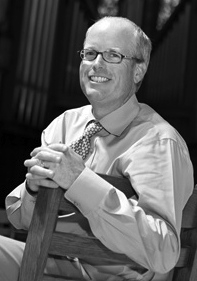“You would be a great fit here,” a program director gushes in an email to an applicant after completing a residency interview.
“I would be pleased to see you in our program this July,” writes another program director.
“Know that we think very highly of you,” writes another.
Applicants read these post-interview emails and wonder what they mean. Some of the emails sound like cheap pick-up lines. Some sound forced or formulaic. Some emails might mean that an applicant is ranked to match. Could it be true?
The kind words from a program director (PD) may insinuate that a resident will match — and studies have shown that applicants often change their rank list after communicating with a PD. But many times, the kind words are simply that. The stakes are high for the PDs as well: where a program fills on their match list is a measure of their competitiveness.
Residency Interview Stress for Applicants
The residency interview trail is arduous, stressful, and expensive. The slightly wrinkled interview suit. The couch surfing with friends you haven’t seen in 4 years. The search for interview rooms in the hospital labyrinth.
A few days after your interviews, out of courtesy, you mail off polite thank you notes on creamy stationery. Your medical school advisor suggested you do this: it is the way it has always been.
And now there are these beguiling emails from program directors. Are you supposed to respond? What do you say? Any response perpetuates an unsavory dance. And yet, no response seems impolitic as well – especially since the power dynamic favors the PD.
Applicants Find Post-Interview Communication Confusing, Surveys Show
In one study of emergency medicine applicants, 51% changed their rank list after contact with a program director. While most felt “happy” (58%) or “excited” (56%), many felt “put on the spot” (21%) and uncomfortable (17%). Among a national study of dermatology applicants, 19% felt pressured to reveal where they ranked their programs and 14% felt uncomfortable with the communication from program directors. In another study of 314 students from 3 medical schools, 43% felt that a program made an informal commitment to them and 33% felt that a program lied to them. What sort of dysfunctional family are we trying to foster?
In a post-interview survey that I conducted last season with applicants to my Med-Peds program at Yale, I asked applicants what they think about post-interview communication — and received strong opinions. One applicant wrote,
It adds an unnecessary amount of stress in an already stressful time. I think there is a necessary desire from applicants to seek some sort of validation after the interview, so not receiving communication or receiving it with vague language ‘you’d fit in really well here’ all adds to the stress. I believe the best position is absolute transparency in the process — no communication unless it is for clear, objective information about the program. Let’s leave the bullsh-t alone and have people rank programs how they like them without outside influence (isn’t that how you would want to be treated?).
The Ethics of Residency Interview Communication for Program Directors
Is it wrong for program directors to court top applicants? Should the Match be like recruiting athletes for a Division I basketball team? Or should applying to residency programs be more like applying to medical school, where there is little to no post-interview communication?
The National Resident Match Program® (NRMP) has responded to applicants’ discomfort with post-interview communication with a code of conduct, where “applicants and program directors should be free to make decisions on a uniform schedule and without coercion or undue or unwarranted pressure.” We must respect an applicant’s right to privacy, refrain from coercive questions, decline to require second visits, and discourage unnecessary post-interview communication.
The NRMP code of conduct may not be strong enough. In 2014, the Association of Program Directors of Internal Medicine (APDIM) published a nonbinding statement to clarify post-interview communication. The APDIM paper notes that 20% of students in one study felt assured they would match at a program, ranked it first, and did not match there, suggesting that communication from program leadership may have been misleading. The paper states, “This sort of gamesmanship, while not in violation of explicit match rules, violates the spirit of the match, which is intended to maintain a level playing field for applicants and programs and to eliminate any type of coercion or manipulation of applicants.” And the APDIM statement discourages using ambiguous phrases — such as “ranked highly” — which may mislead applicants.
What Should Program Directors Do?
The power equation is decidedly tipped in favor of the program director: we have done this before. In my conversations with PD colleagues, I hear plenty of strong opinions. Some talk about how they need to convey a personal touch, create a connection with an applicant after the residency interview, or foster a sense of family. We will be working with these applicants for years to come; we should get to know them as best we can. Mostly they talk about how the other program directors engage in post-interview communication. Most PDs I speak with feel conflicted around post-interview communication but don’t see a way around it.
I believe that the APDIM statement articulates a quality we would do well to embody: honor. We should treat our applicants honorably. We should convey genuine hospitality when our applicants visit us, integrity with our communication, and professionalism to a fault. We should be clear on the interview day about post-interview communication — whether and how we communicate with applicants. My own practice is to refrain from all recruitment-type emails. Program updates, delivered to all applicants, are fine. Millennials can spot fakery in seconds. Just ask a millennial what “swiping right, swiping left” means. A disingenuous email makes a program director look bad — makes us all look bad. Whether true or not, rumors travel fast on the residency interview trail. We should model the behavior that we seek to inspire as our applicants become our residents.
 Benjamin R. Doolittle, MD, is an expert in burnout and wellness in residents and physicians. He is an associate professor and program director of internal medicine and pediatrics at the Yale University School of Medicine and the medical director of the Yale Medicine-Pediatrics Practice.
Benjamin R. Doolittle, MD, is an expert in burnout and wellness in residents and physicians. He is an associate professor and program director of internal medicine and pediatrics at the Yale University School of Medicine and the medical director of the Yale Medicine-Pediatrics Practice.


